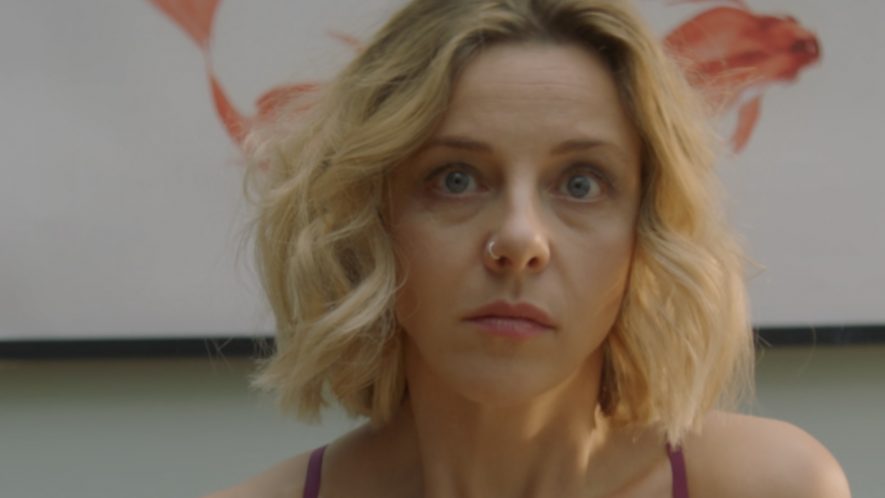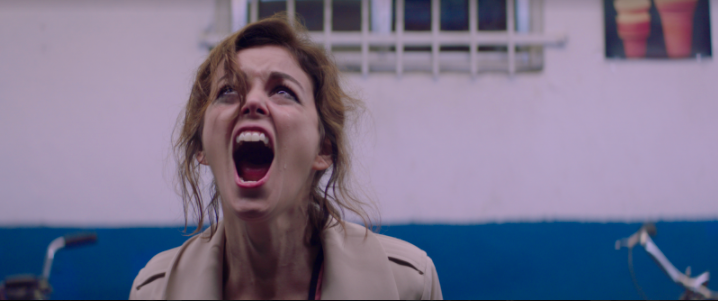Raed Alsemari
Born and raised in the Kingdom’s capital, Raed went on to study at Harvard and then NYU. His short film Dunya’s Day is as much a love letter to the women of Riyadh as it is a social satire. It follows Dunya on the eve of her big graduation bash as she’s faced with a crisis: the household staff have disappeared. Helped by her two best friends/cronies, she decides to throw the party anyway. The film is chaotic yet contained, hilarious yet full of heart. Alsemari expertly plays with camera and sound, keeping his distance until Dunya reaches her point of no return. Think Wild Tales meets Almodovar meets Mean Girls. If it sounds too good to be true – it is. Just ask the people at Sundance, who gave it the Short Film Jury Award for International Fiction. 
Sarah Abu Abdallah
Sarah Abu Abdallah is a visual artist and filmmaker based in Qatif, a small town in the eastern province of Saudi Arabia. Her work reflects this rural upbringing and how it can lead to a reliance on constant data streams from the internet. Abdallah’s films are experimental, to say the least. In one film, The Salad Zone, two women in black abayas (and burqas) repeatedly smash a television. It was inspired by a story a friend told Abdallah about an argument that took place at her home. “My friend was so angry that she took a stick and started smashing the TV,” the artist explains. “I thought it was funny because the TV room seems to be the place where a lot of anger develops. It’s also the place in a home where people gather the most.” Like many Saudis, her work focuses on the intersection between the absurd and the mundane – and how blurred that intersection can often be. 
Ali Alkallthami
Also a Riyadh native, Kalthami grew up in the 80s, right when the The Committee for the Promotion of Virtue and the Prevention of Vice (read: religious police) were at the peak of their power. To jump over censorship hurdles, Kalthami co-founded Telfaz11 in 2011, a YouTube channel that now has over 3 million subscribers. He wrote many short films for the channel, like this one, where Saudis try to reclaim their narrative via Snapchat, only to end up perpetuating stereotypes like the oppressed woman stuck at home and the Quran-wielding preacher. His latest film, Wasati, which roughly translates to ‘a moderate without a middle ground’, tells the true story of when a Riyadh theatre was stormed by the Committee for the Promotion of Virtue and Prevention of Vice (again, read: religious police). Backed by strong performances, dark comedy, and various nods to film legends, Kalthami proves that a local love for cinema predated physical cinemas by years – if not decades. 
Meshal AlJaser
‘Absurd’ is probably the best word to describe Meshal’s films, which tackle Saudi culture by holding a (slightly distorted) mirror up. One of his first films, Can I Go Out? is set in 2017, before women were granted the right to drive. It follows a teenage girl as she goes through the all-too-common struggle of trying to go to her friend’s house. When her brother, father, and driver prove unavailable, she ends up taking a taxi. The final shot, where the driver turns to her ever-so-slowly – a flower clamped between his teeth and eyes bubbling with thirst – is enough to change any legislation. Can I Go Out? used elements that would go on to become key features of all Meshal’s films, like voice-over, action sequences, and musical numbers. His other shorts tackle similar social issues, like Is Sumiyati Going to Hell, the story of an Indonesian maid suffering at the hands of her racist employers. Arabian Alien, his latest film, premiered at Sundance this year. Its main character, Saad, is stuck in a depressing marriage – until an Alien arrives and sweeps him off his feet. In one particularly memorable scene, Saad’s Alien lover prances through pastel fields to soaring synth music and dreamy vocals. As haunting as it is, it’s also hilarious. “Sometimes, the situation is so sad, it becomes funny to me,” Meshal explained in an interview with Scene Arabia. “Because it’s funny how people think this is okay. This in itself is the joke.” 
Shahad Ameen
Shahad’s films also question the dominance of patriarchal forces in Saudi Arabia. Though many Saudis employ satire, Shahad’s preferred vessel is fantasy. Her short film Eye & Mermaid was recently developed into a feature, Scales, which won the Verona Award for Most Innovative Film at the Venice Film Festival last year. The film is a modern feminist fable, drawing on Arabic folklore to challenge generational prejudice. It follows Hayat, a young woman who rebels against the tradition in her fishing village of sacrificing female children to monstrous mermaids. To date, Shahad’s films have revolved around the sea, with its magnetic yet sinister forces. Shahd is from Jeddah, a city on the west coast of the country that derives much of its identity from the Red Sea – a through-line its artists have clearly inherited.











